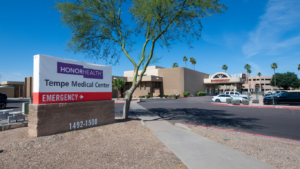A growing number of Arizonans are stepping up to advocate for themselves when it comes to healthcare. They’re transforming their roles from passive recipients to informed, proactive participants in their medical journeys. This shift reflects a broader trend of empowerment and personalized management of health that is resonant across all ages and communities. From debunking medication myths to leveraging online tools for better health management, here we explore how individuals are taking the reins of their medical care, ensuring their needs and preferences are front and center.
Educating Themselves Through Reliable Sources
The journey to taking charge of one’s health begins with education. People are no longer relying solely on their healthcare providers for information. Instead, they’re turning to trusted health information websites, attending workshops, and even enrolling in health literacy programs to understand more about their conditions and the treatments available. This self-directed learning helps them make informed decisions and engage more meaningfully in discussions with their healthcare providers, ensuring that their treatment plans align with their personal health goals and lifestyle preferences.
Challenging and Clarifying Healthcare Myths
As patients navigate their healthcare, they encounter numerous myths and half-truths that can cloud their judgment. A prime example is the swirl of Ozempic myths that have proliferated online and through casual conversations.
Many Arizonans are now taking it upon themselves to verify such information through credible sources before accepting it as truth. By consulting healthcare professionals and scientifically-backed resources, they are able to understand the effects, benefits, and potential side effects of medications like Ozempic, enabling them to make choices based on facts rather than hearsay.
Personal Health Records – A Tool for Empowerment
Maintaining personal health records is a powerful way for individuals to take charge of their medical care. By keeping track of their medical history, test results, and treatment plans, they can ensure continuity of care across different providers, avoid redundant tests, and quickly provide vital health information in emergencies.
This proactive approach not only saves time and money but also fosters a sense of control over one’s health journey. It empowers individuals to align their health actions with their long-term wellness goals, making them active participants in their health care rather than mere bystanders.
Navigating Online Health Services for Discreet Testing
One of the most significant ways people are taking control of their health involves the utilization of online services, especially for sensitive or stigmatized conditions. For instance, many Arizonans are now finding testing online for sexual health needs—an area where privacy is highly valued. Websites that offer confidential testing options allow users to order tests directly to their homes or arrange for private appointments at clinics, thereby maintaining their privacy and dignity.
This trend not only supports those seeking discreet assistance but also enhances accessibility and convenience for all. As individuals become more proactive, they also explore options like bacterial vaginosis, or BV treatment online, which allows them to address issues promptly and privately without the need for a traditional doctor’s visit.
Leveraging Apps and Technology for Daily Health Management
With the advent of health-focused technology, individuals are now able to track their daily health metrics using apps and wearable devices. These tools provide real-time data on different health parameters like heart rate, sleep patterns, and activity levels.
By monitoring these metrics, people can detect potential health issues early and seek timely medical advice. Furthermore, these apps often include features that allow users to set reminders for medication, hydration, and even scheduled exercises, fostering a routine that supports their overall health and well-being.
Participating in Online Health Communities
Finally, the rise of online health communities has provided a unique way for individuals to share experiences, advice, and support. In these spaces, Arizonans are not only finding emotional support but are also exchanging practical information about managing various health conditions. These communities help demystify health issues, promote common understanding, and encourage a collaborative approach to health management. Through these interactions, individuals feel more equipped and confident to make informed medical decisions about their health care and treatment options.
As Arizonans increasingly take charge of their health care, they are paving the way for a more informed, engaged, and proactive approach to managing health. This empowerment is reshaping how health care is perceived and delivered, emphasizing personalized care and informed patient participation. The shift towards self-advocacy in health is not just a trend but a sustainable movement towards better health outcomes and more satisfying healthcare experiences. This proactive stance in managing one’s health is a testament to the power of information and community in fostering a healthier, more empowered Arizona.




